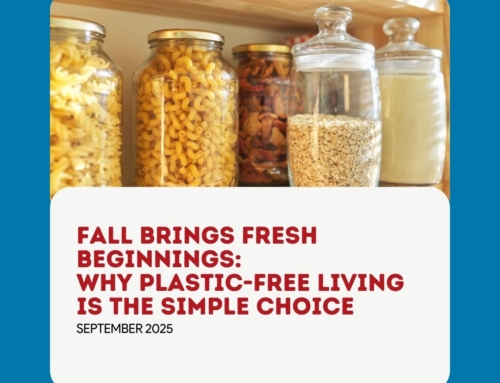
Excited to enjoy the great outdoors with friends and loved ones? So are we! Now that winter’s behind us, it's the right time to think about making eco-friendly and plastic-free choices that align with the season. Let’s explore a few easy-to-apply eco-friendly tips to help you reduce your environmental footprint while enjoying the season's beauty.
1. Keep Your Cool, Naturally
When the heat turns up, reaching for the air conditioning is tempting, but before you do, try harnessing the power of natural ventilation. You can keep your space cool and comfortable without relying on electricity by simply opening windows, using fans, and creating cross-breezes. And, when the heat is at its peak, consider closing blinds or curtains to block out the sun’s rays and prevent your home from heating up.
How Does This Help?
● Eco-Friendly: Reducing your reliance on air conditioning, which contributes to greenhouse gas emissions, is a simple yet effective way to stay cool while being kind to the planet.
● It Pays to Go Green: Air conditioning is one of the most energy-intensive appliances in a home. By minimizing or avoiding its use, you significantly reduce your electricity consumption.
● Your AC Unit Will Thank You: Constantly running your air conditioner can lead to wear and tear, which shortens its lifespan. Using it less often reduces the strain on the system, potentially extending its life. In the long run, this can save you money by delaying costly repairs or needing a new unit while keeping your maintenance costs lower.
2. Power Up from the Sun
The warmer months bring more sunlight, so why not use it? If you’ve considered solar energy, now is the time to switch. There's no shortage of ways to go solar, from solar panels on your roof to smaller solar-powered gadgets.
Why It Works: Solar energy is a clean and renewable resource that helps reduce your carbon footprint. Even small changes like solar-powered garden lights or a solar water heater can significantly reduce energy consumption and environmental impact.
3. Try Alternative Transportation
Cars that run on fossil fuels are a staple in many of our daily commutes, but they contribute significantly to pollution and greenhouse gas emissions. Instead, consider using alternative green transportation options like:
- Carpooling: Carpooling allows multiple people to share one vehicle, reducing the number of cars on the road and reducing individual emissions. Whether heading to the store, a concert, or a family event, carpooling helps reduce traffic congestion and saves on fuel costs, making it an eco-friendly and cost-effective choice.
- Bicycles: Cycling is a zero-emission transportation form that offers environmental and personal health benefits. It reduces your carbon footprint while promoting physical fitness. Biking is ideal for short distances and is an excellent alternative to driving in busy urban areas.
- Public Transit: Using buses, trains, and trams is an eco-friendly travel method, especially in cities. Public transportation reduces the number of individual vehicles on the road, which helps lower air pollution, traffic congestion, and your overall carbon footprint.
Switching to alternative green transportation reduces your environmental impact, helps conserve natural resources, and encourages healthier, more sustainable ways to travel.
4. Enjoy Local and Seasonal Food
In the summertime, people love enjoying local organic fruits and vegetables. It not only cuts the carbon footprint of foods traveling long distances but also keeps the money in the local economy by supporting small-scale farmers. Similarly, going local has a reduced environmental impact and more health benefits for you and your family. Another benefit is that many local options are packaged in non-wasteful containers, like reusable recycled paper egg cartons or eco-friendly bags, thus minimizing plastic waste. You can visit a farmer's market or enroll in a Community Supported Agriculture program to ensure you get local, sustainable produce to enjoy all year round. Look for small farmers’ markets near you and bring your reusable bags or baskets along when you shop. Shopping this way also allows you to avoid producing stickers and plastic bread tags, as often farmer’s market products are wrapped in paper and other recyclable materials.
5. Enjoy Plastic-Free Pool and Beach Days
When heading to the pool or driving to the beach for the day, there are often many things to pack to prepare us for a day in the sun. Making a list to prepare yourself will help reduce any waste on an outing like this.
Start by packing lunches and snacks in reusable glass containers instead of single-use packaging. Prep ahead to avoid purchasing take-out that often comes in single-use plastic wraps.
Protect yourself from the heat and sun with reef-safe sunscreen. This type of sun protection often comes in compostable packaging - a win-win for your skin and the environment.
When choosing your outfit for the day, consider flip flops made from natural or recycled materials instead of plastic. Often, flip flops are an accessory that is worn for a short period and thrown away, ending up in a landfill. Making a conscious decision about our footwear can ensure we pick a quality pair of sandals that last longer and reduce our plastic footprint.
When you’re at the beach or public pool, pack up what you brought in. Use public garbage and recycling receptacles and pick up any trash while you’re there. Keep public spaces clean and inspire others to do the same.





